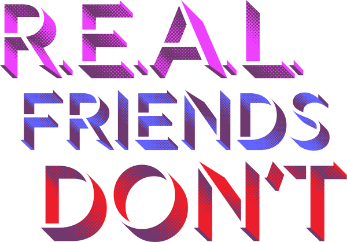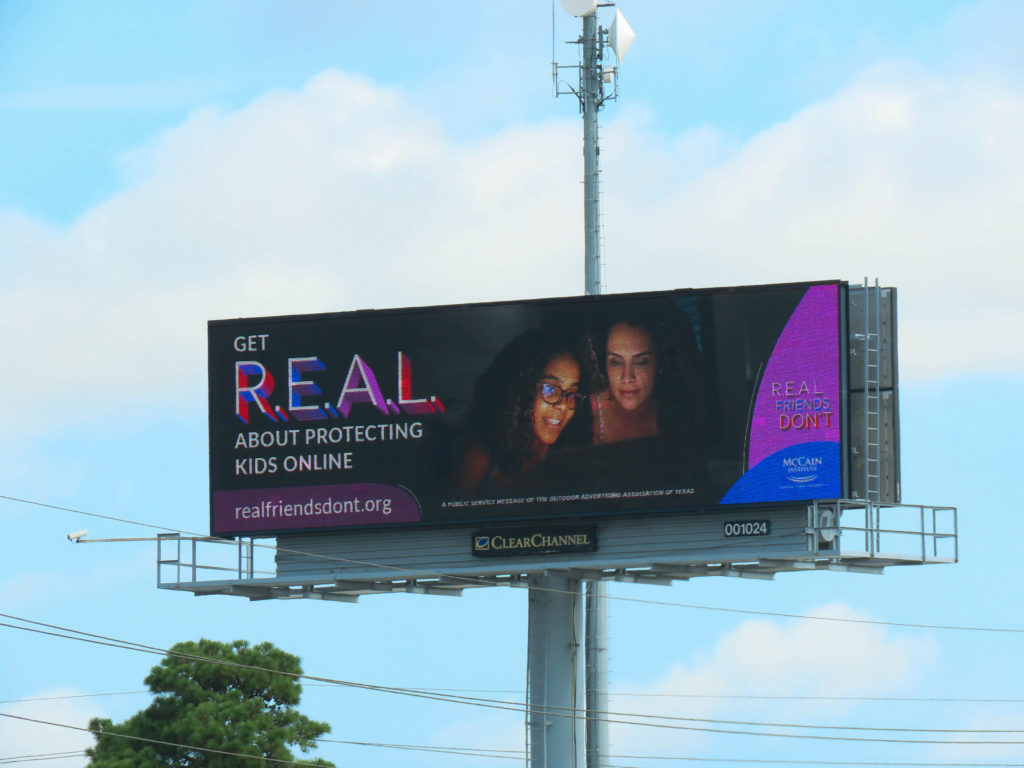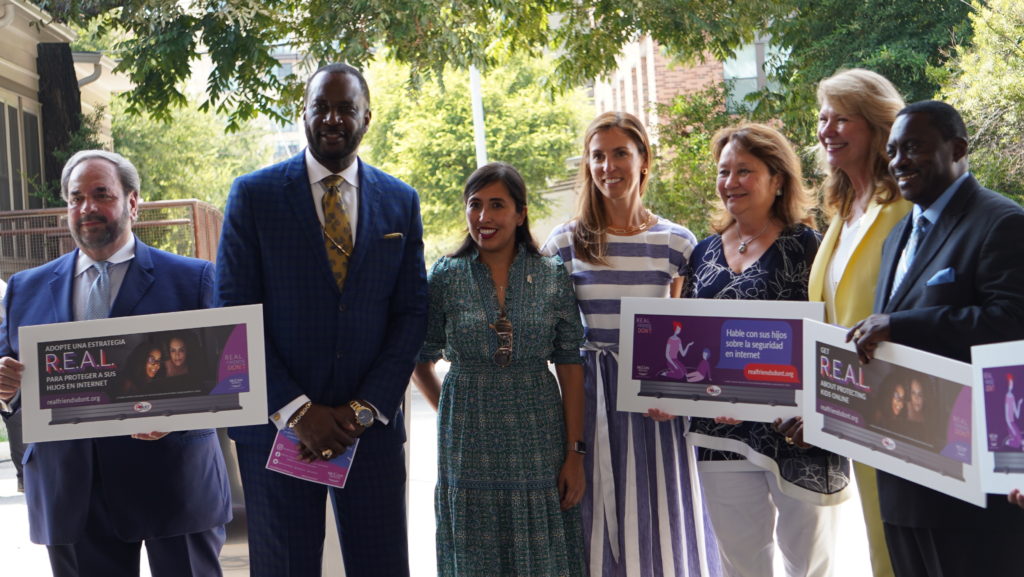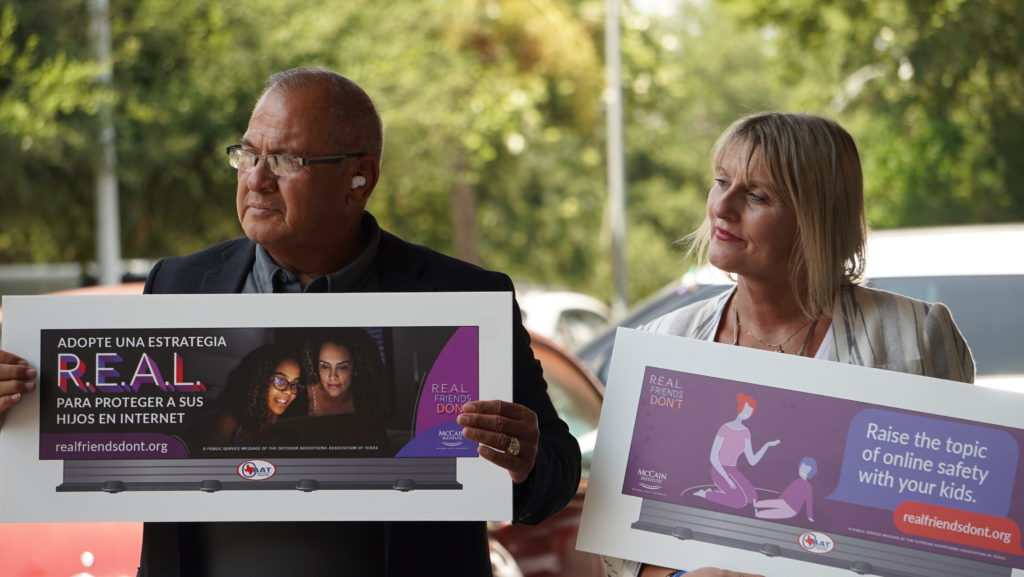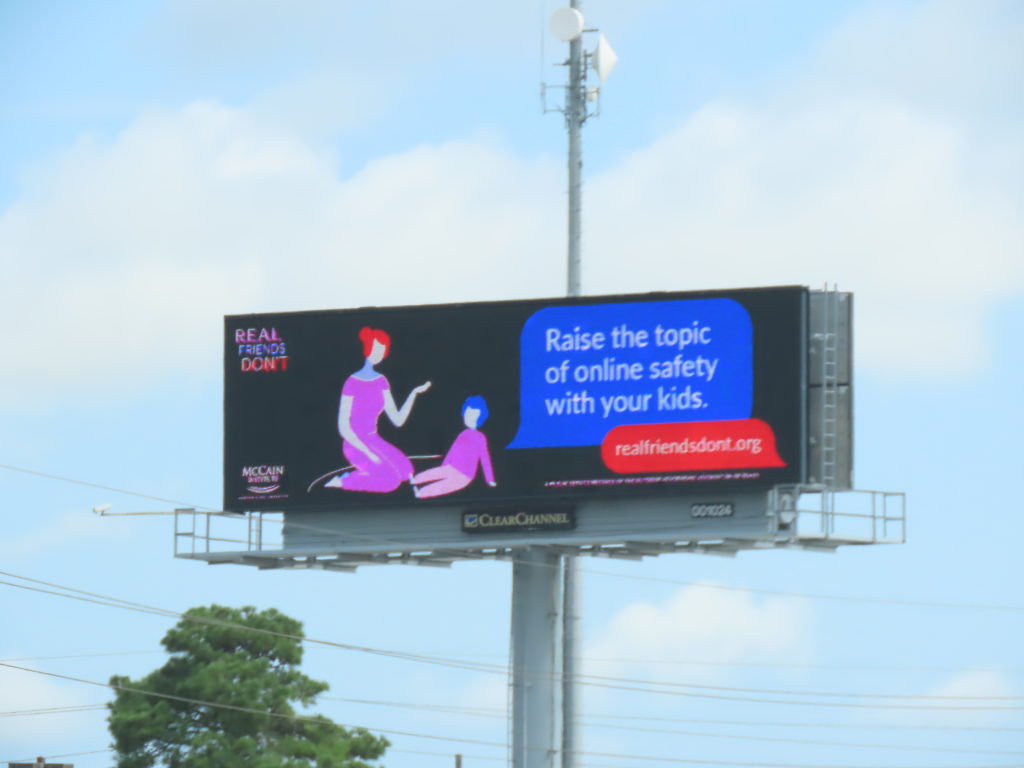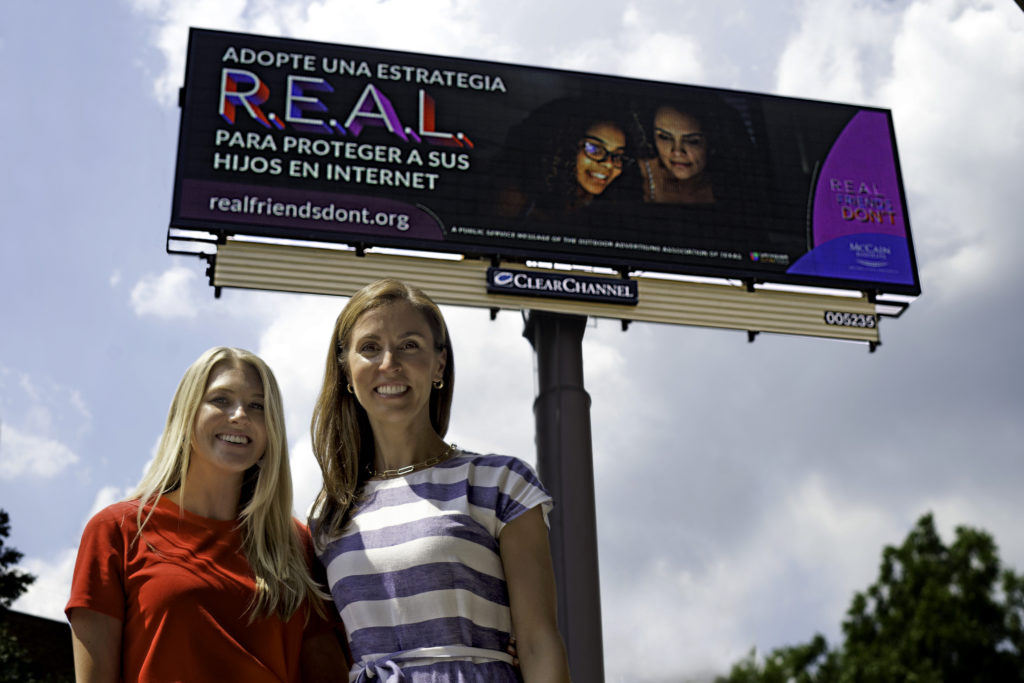R.E.A.L. Friends Don’t unveils billboards in San Antonio
The McCain Institute unveiled new billboards as part of an expansion of the nationwide online child safety campaign, R.E.A.L. Friends Don’t. The out-of-home advertising portion of the campaign is expected to reach 180+ million Texans in over 70 cities across the state, raising awareness about online safety and child exploitation
About the project
The R.E.A.L Friends Don’t campaign increases awareness and equips parents and caregivers with the tools and resources to help kids navigate their online experiences and protect them from potentially harmful relationship or grooming. Recognizing the disproportionate impact that exploitation and trafficking has on racial minorities, the McCain Institute has taken extra steps to ensure the campaign reaches those most at risk. “A one size fits all approach does not work for this type of issue, and we are committed to ensuring that all parents and caregivers—not only those with the ability to engage with our content online—have access to this important safety information,” said Kristen Abrams, senior director of the McCain Institute’s Combatting Human Trafficking program.
Through a partnership with the Outdoor Advertising Association of Texas and the Office of the Governor, R.E.A.L. Friends Don’t launched print and digital billboards across the state to educate Texans about online safety and ensure parents and caregivers have the resources they need to start the conversation with their children about staying safe online, as well as where to turn if something does go wrong. The billboards, with messages in both Spanish and English, will be broadcast throughout Texas through the end of the year.
About the McCain Institute for International Leadership at Arizona State University
Inspired by the character-driven leadership of Sen. John S. McCain and his family’s legacy of public service, the McCain Institute fights to advance freedom, prosperity, security and human dignity for all Americans and the world.
About Arizona State University
Arizona State University has developed a new model for the American research university, creating an institution that is committed to access, excellence and impact. ASU measures itself by those it includes, not by those it excludes. As the prototype for a New American University, ASU pursues research that contributes to the public good, and ASU assumes major responsibility for the economic, social and cultural vitality of the communities that surround it.
